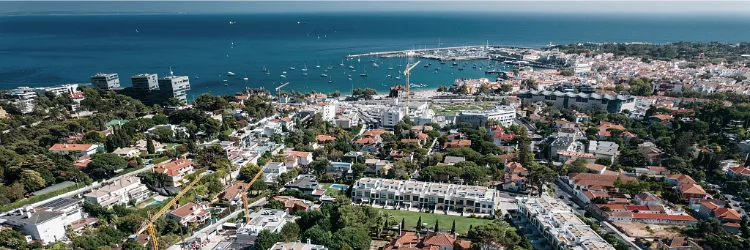Rental income rules and tax obligations in Portugal

If you are considering buying residential property in Portugal as an investment, with a view to renting it out, you are advised to appoint a fiscal representative to handle the necessary accounting services in Portugal and to ensure that you stay in compliance with the Portuguese tax system.
On agreement to purchase, you will need to obtain an individual Portuguese fiscal number (‘Numero fiscal de contribuinte’), a nine-digit number that is used on all documents relating to the purchase of the property. This number can be applied for by your fiscal representative and is also required to open a bank account in Portugal.
For married couples, both individuals must obtain a fiscal number even if only one party is to purchase the property, or the Tax Department will not accept payment of the IMT Property Transfer Tax. If you are purchasing through a company, the company will also need a fiscal number.
Non-EU residents no longer need to appoint a fiscal representative providing they adhere to online notifications from the Tax Department. However, these are in Portuguese, and it is easy to miss a deadline because the Tax Department generally requires responses in 10 to 15 days. It is therefore advisable to appoint a ‘fiscal representative’ to liaise with the Tax Department and deal with taxes and all communications on your behalf.
As a property owner in Portugal, you will then be liable to pay the annual municipal property tax (IMI), which is based on the ratable value as assessed by the Tax Department based on a property’s size, location and construction.
An additional property tax (AIMI) is also applied to individual property owners, including non-residents. This is an extra property charge levied if the tax value of the individual’s total properties exceeds €600,000. Properties owned by a company are also charged the AIMI but on the full tax value of the property.
All long-term rentals require the rental contract to be registered at the Tax Department and invoices should be issued accordingly. While this should be a straightforward task, it is conducted in Portuguese, so it is easy for errors to go unnoticed. You must also be fully aware of all the rules and obligations attaching to a landlord in Portugal, as well as those of the tenant.
Short-term rentals, known as Alojamento Local (AL) in Portuguese, are more complex. Any property owner who rents their property, either privately or through an agent, is legally obliged to register this activity, obtain a licence and pay taxes on the income earned.
To obtain the AL licence, you must first register the activity at the Tax Department and the Social Security office. Effectively this means you are registering as a ‘self-employed’ person and your business activity is renting your property.
You will also be automatically registered under the simplified VAT (IVA) regime but unless you exceed €15,000 rental income in the first year, you will be exempt from charging and paying VAT. If, however, you exceed the €15,000 income you will be obliged to submit quarterly VAT reports from your second year of renting. This is often the case now in Portugal with the higher value properties on the rental market.
When registered, you are required to apply for an AL touristic licence at your town hall (Câmara Municipal), where you must submit all necessary documentation and ensure that your property is fit for purpose. This should include up-to-date certifications for utilities, and compliance with standards of quality and safety, in case the property is subject to council inspection.
As soon as you start operating your AL, there are various obligations with which you have to comply:
- Issue invoice receipts (recibos verdes).
- Account for and pay tax on the annual rental income, as well as IVA if applicable.
- Certain Portuguese municipalities have also implemented a Municipal Tourist Tax (Taxa Municipal Turística) on overnight stays.
- Report to AIMA (Portugal’s immigration agency) details of all foreign guests on each visit.
- It is mandatory to have landlord’s insurance.
- It is mandatory to maintain an official complaints book.
The picture was set to get even more complicated with the entry into force of the ‘Mais Habitação’ legislative package in October 2023, which introduced several restrictive measures for short-term rentals in Portugal, including increased tax through an Extraordinary Local Accommodation Contribution (CEAL).
Fortunately, the new government, which came into power in April, has recognised the contribution of tourism and has now revised these policies. In May, a decree-law amended the framework for short-term rental to give each municipality autonomy on AL licensing and, in June, the Portuguese parliament approved legislation to repeal the CEAL.
When an AL is granted, the Tax Department will allocate the property from personal use to business use, which can alter the tax profile of the owner. If resident in Portugal, you should assess how this could impact your personal tax returns.
If the property is later sold, it is very important to remember that the capital gains tax (CGT) treatment of an AL property is different because it will be classified as a business asset for CGT calculations. Unless the business activity is ceased three years prior to the sale, the vendor will not be permitted to deduct any costs from the sale price.
Renting out your investment property requires careful planning and management. Sovereign can act as your fiscal representative, register you as self-employed, apply for the AL licence, register the long-term rental contracts and provide accounting services.
Sovereign can further provide calculations to assess how renting could impact your personal tax position.
